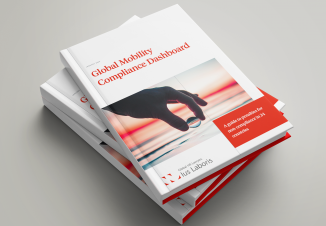
State of Emergency Residence Relief Measures
Additional measures to deal with the coronavirus emergency were adopted on 20 March in the Measures and Actions during the State of Emergency Act (the ‘Act’) which entered into force on 24 March. They include relief measures for certain categories of residence permit holders listed below.
The term of validity of the following types of residence permit IDs or certificates which expire between 1 January 2020 and 31 October 2020 shall be extended for six more months:
In addition, pursuant to the Act, if a third-country national fails to submit an application for the renewal of their prolonged residence permit within the statutory 14 days prior to the permit’s expiry date, their residence will not be deemed interrupted for the duration of the state of emergency if and when the third country national applies for long-term or permanent residence. If their current prolonged residence permit expires during the state of emergency, the foreign national will be permitted to enter Bulgaria without a visa within 14 days of the end of the state of emergency.
Lastly, any absence of a long-term or permanent residence permit holder from the territory of the EU member states for the duration of the state of emergency will not count towards the 12 months of permitted absence (which, if exceeded could lead to permit annulment).
State of Emergency restrictions on border entry
On 19 March 2020, the Bulgarian Minister of Health issued an Order implementing the following measures:
1. As of 00:00 on 20 March 2020 until 17 April, entry into the territory of Bulgaria to all nationals of third countries through all border checkpoints, and by any means of transport, including aircraft, maritime and railways is temporarily prohibited.
2. Exempt from this ban are Bulgarian nationals, as well as their family members and foreign nationals who have a permanent or prolonged Bulgarian residence permit.
3. The prohibition under 1 is not extended to nationals of member states of the EU and the countries of the Schengen area, as well as the members of their families, excluding passengers arriving from the following from China, Iran, Bangladesh, India, the Maldives, Nepal, Sri Lanka, Spain, Italy, South Korea, France, Germany, the Netherlands, Switzerland and the United Kingdom and Northern Ireland.
4. The ban does not apply to:
Long-term visa holders are not listed amongst the exceptions and therefore we believe there are subject to the ban. Subject to any subsequent clarification from the authorities, the order appears to be straightforward and unambiguous, not leaving any room for interpretation.


